Why was Donald Trump a crucial factor in Canadian election?
Even with Canadians grappling with the fallout from a deadly weekend attack at a Vancouver street festival, Donald Trump was trolling them on election day, suggesting on social media that he was on their ballot and repeating that Canada should become the 51st state.
He also erroneously claimed that the US subsidises Canada, writing, “It makes no sense unless Canada is a State!”
“Good luck to the Great people of Canada,” he said.
“Elect the man who has the strength and wisdom to cut your taxes in half, increase your military power, for free, to the highest level in the World, have your Car, Steel, Aluminum, Lumber, Energy, and all other businesses, QUADRUPLE in size, WITH ZERO TARIFFS OR TAXES, if Canada becomes the cherished 51st. State of the United States of America. No more artificially drawn line from many years ago.”
Mr Trump’s truculence has infuriated many Canadians, leading many to cancel US vacations, refuse to buy American goods and possibly even vote early.
A record 7.3 million Canadians cast ballots before election day.
“The Americans want to break us so they can own us,” Mark Carney said in the run-up to election day. “Those aren’t just words. That’s what’s at risk.”
Namita Singh29 April 2025 05:28
Poilievre’s Trump-lite campaign costs him election
The Conservative Party’s leader Pierre Poilievre hoped to make the election a referendum on former prime minister Justin Trudeau, whose popularity declined toward the end of his decade in power as food and housing prices rose.
But Mr Trump attacked, Mr Trudeau resigned and Mark Carney, a two-time central banker, became the Liberal Party’s leader and prime minister.
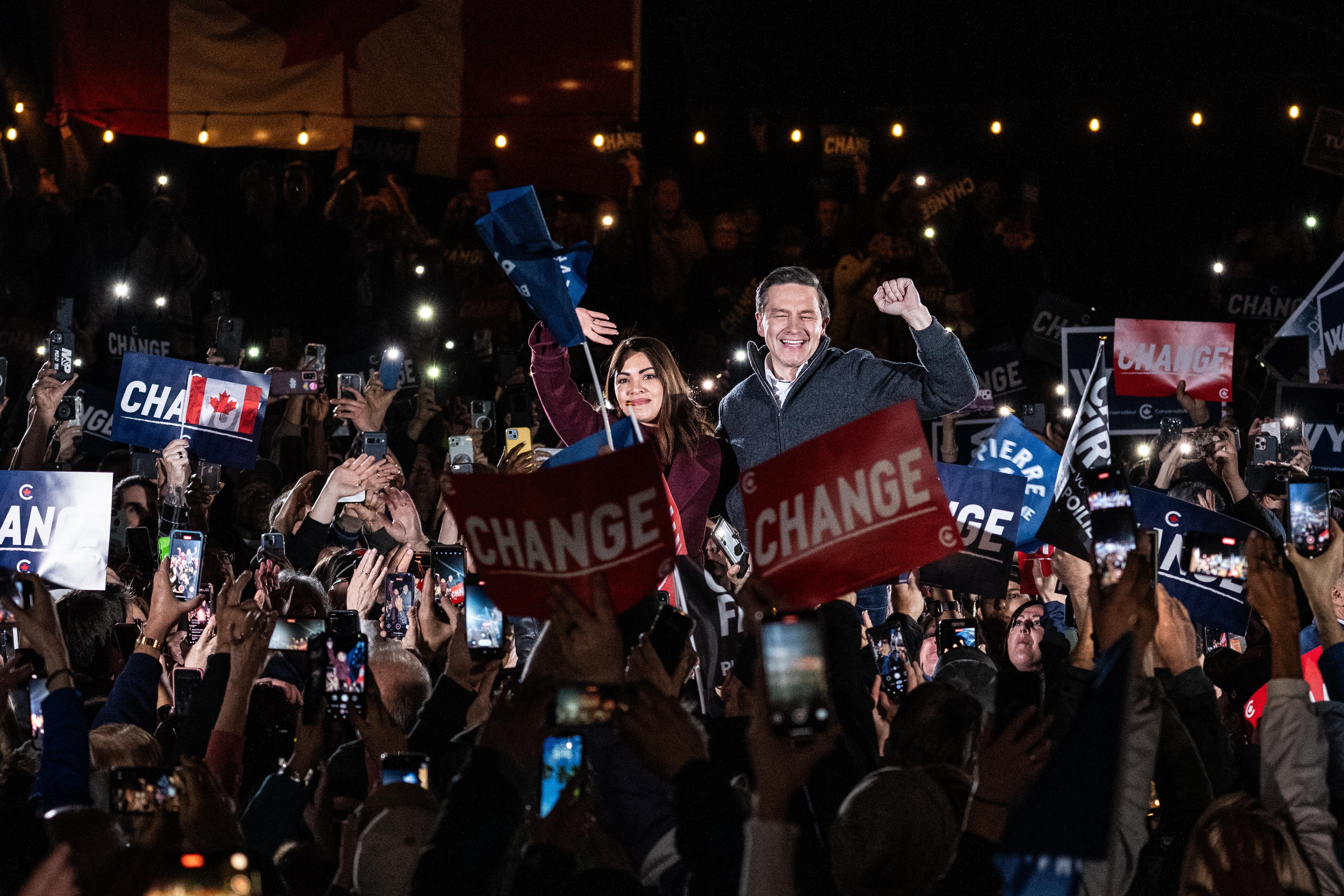
Mr Poilievre implored voters to “Get out to vote — for a change”. After running a Trump-lite campaign for weeks, though, his similarities to the bombastic American leader might have cost him.
Reid Warren, a Toronto resident, said he voted Liberal because Poilievre “sounds like mini-Trump to me”.
And he said Trump’s tariffs are a worry.
“Canadians coming together from, you know, all the shade being thrown from the States is great, but it’s definitely created some turmoil, that’s for sure,” he said.
Namita Singh29 April 2025 05:00
‘We were dead and buried’
Former justice minister David Lametti hailed prime minister Mark Carney for the Liberal Party’s win in the Canadian federal elections.
The Liberals looked headed for a crushing defeat until the American president started attacking Canada’s economy and threatening its sovereignty, suggesting it should become the 51st state.
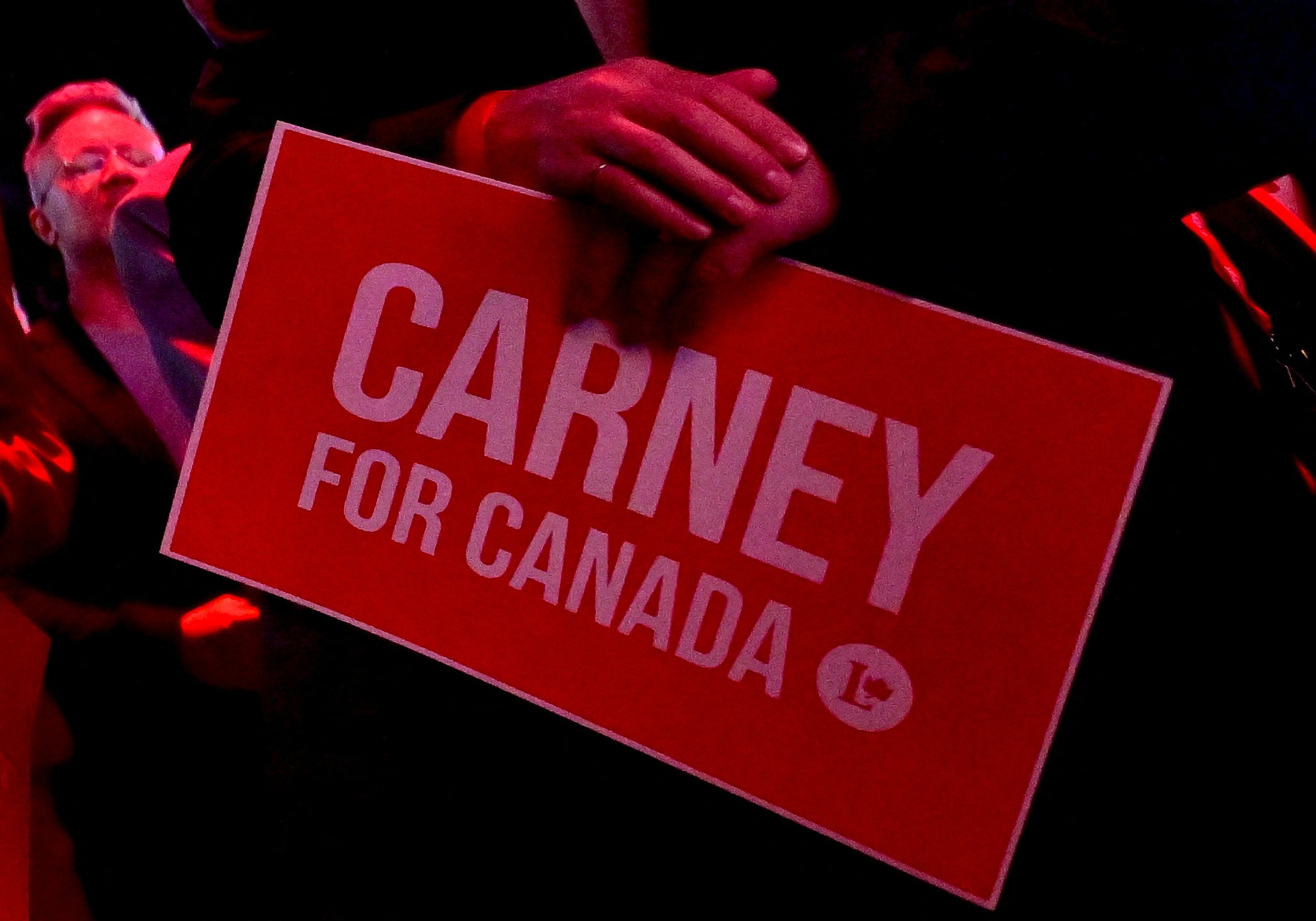
Trump’s actions infuriated Canadians and stoked a surge in nationalism that helped the Liberals flip the election narrative and win a fourth-straight term in power.
“We were dead and buried in December. Now we are going to form a government,” Mr Lametti, a former Liberal Justice Minister, told broadcaster CTV.
“We have turned this around thanks to Mark,” he said.
Namita Singh29 April 2025 04:38
What happens if no party wins a majority?
Canadians aren’t directly electing their prime minister. Voters in each of Canada’s 343 federal electoral districts are only electing their local representative to the House of Commons.
The leader of whichever party wins a majority of seats in the House of Commons will form a new government and serve as prime minister.
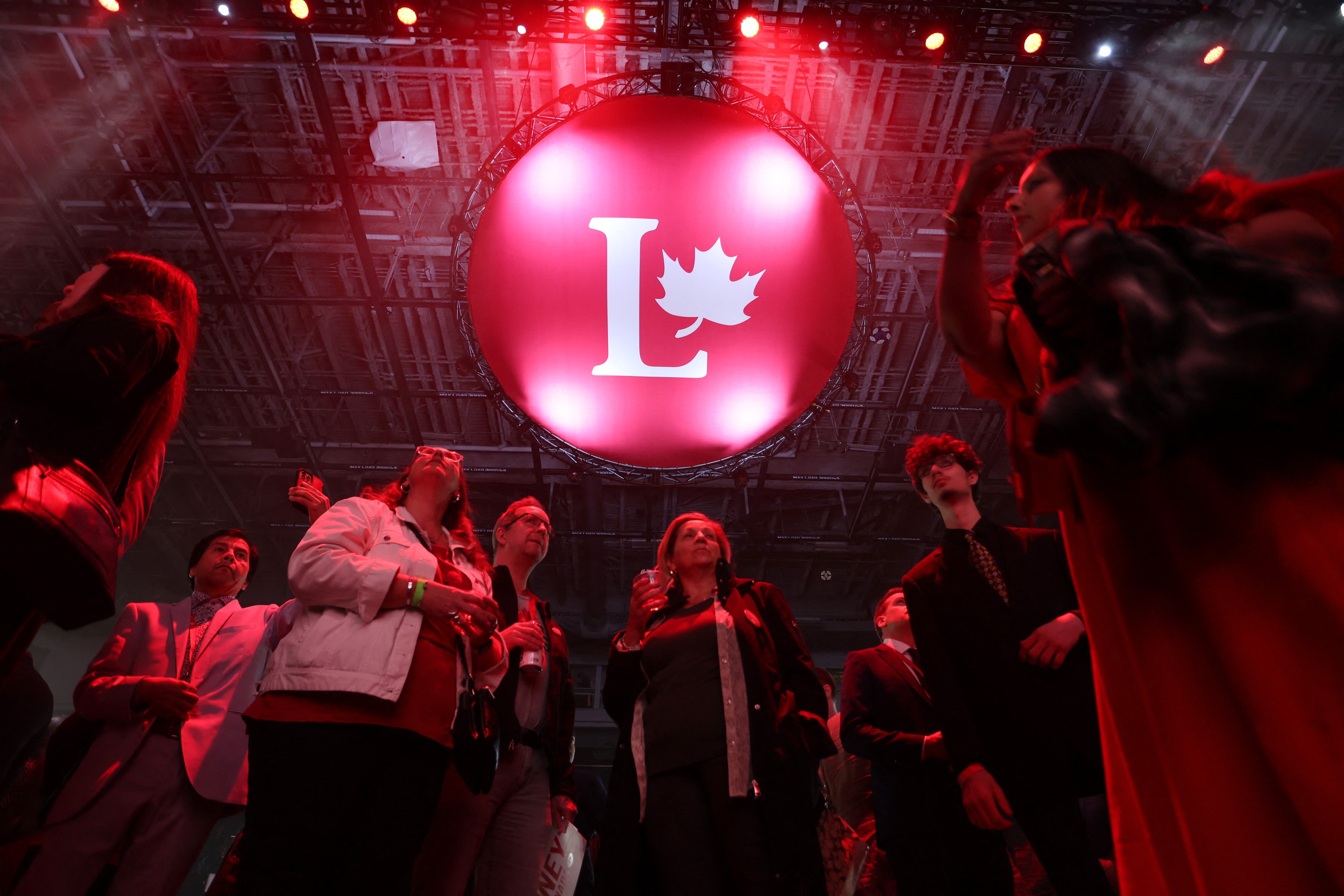
If no party wins a majority, a party — usually the one with the most seats — can form a minority government but must rely on support from some opposition members.
In rare cases, two or more parties might reach a formal agreement to form a coalition government together.
Namita Singh29 April 2025 04:15
Mark Carney retains his seat in Ottawa
Sitting prime minister Mark Carney has retained his seat in Ottawa. This makes him the first prime minister to hold a seat in Ottawa since the 1880s.
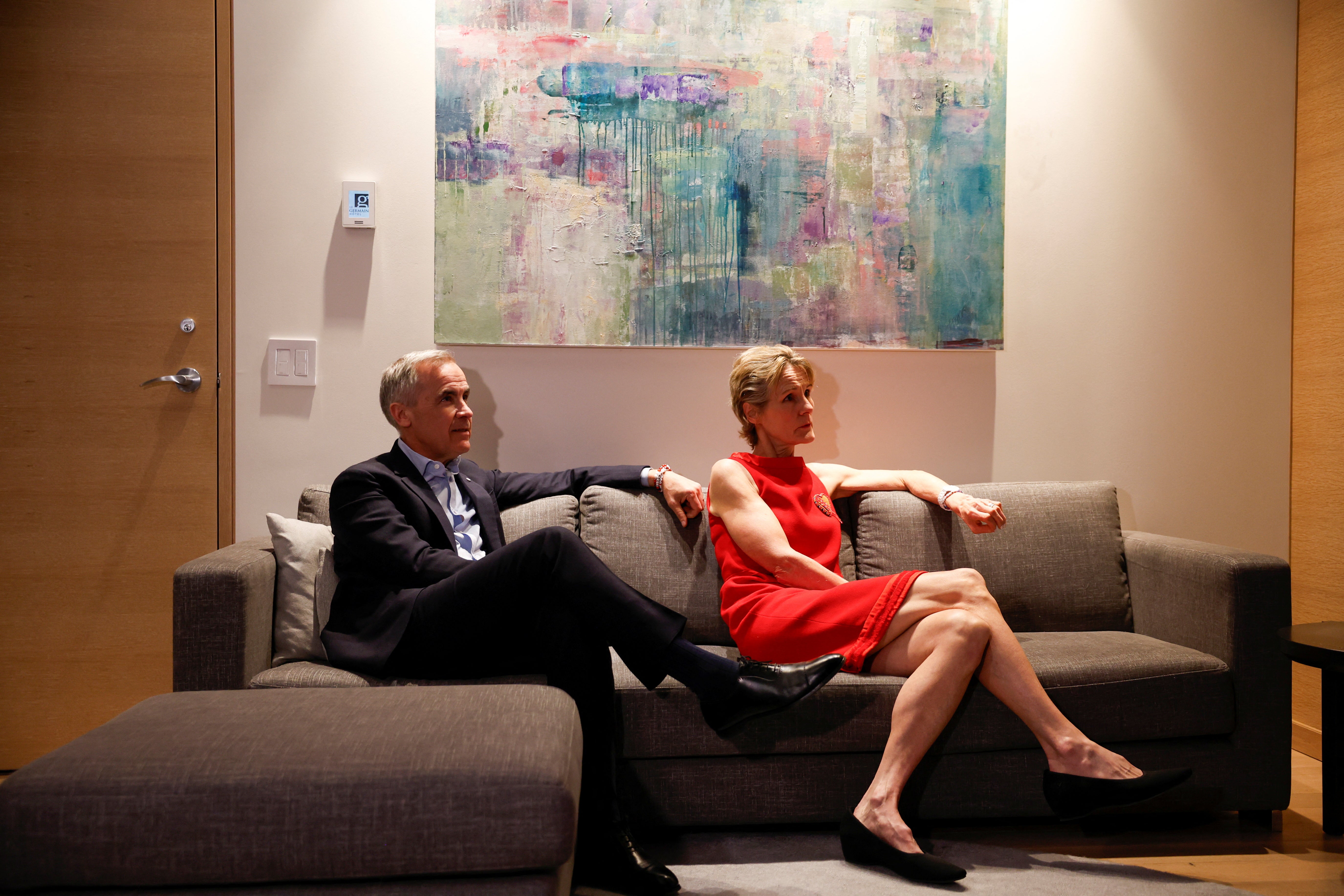
The first non-Brit to run the Bank of England since it was founded in 1694 and the former head of Canada’s central bank, Mr Carney entered the race to be Canada’s next prime minister in January following Justin Trudeau’s resignation.
His Liberal Party has been projected to win more of Parliament’s 343 seats than the Conservatives. But it wasn’t clear yet if the Liberals will win an outright majority, which would allow them to pass legislation without needing help.
Namita Singh29 April 2025 04:12
Mark Carney’s Liberals win election
Prime minister Mark Carney’s Liberal Party won Canada’s federal election on Monday, capping a stunning turnaround in fortunes fueled by US president Donald Trump’s annexation threats and trade war.
The Liberals are projected to win more of Parliament’s 343 seats than the Conservatives, though it wasn’t clear yet if they would win an outright majority, which would allow them to pass legislation without needing help.
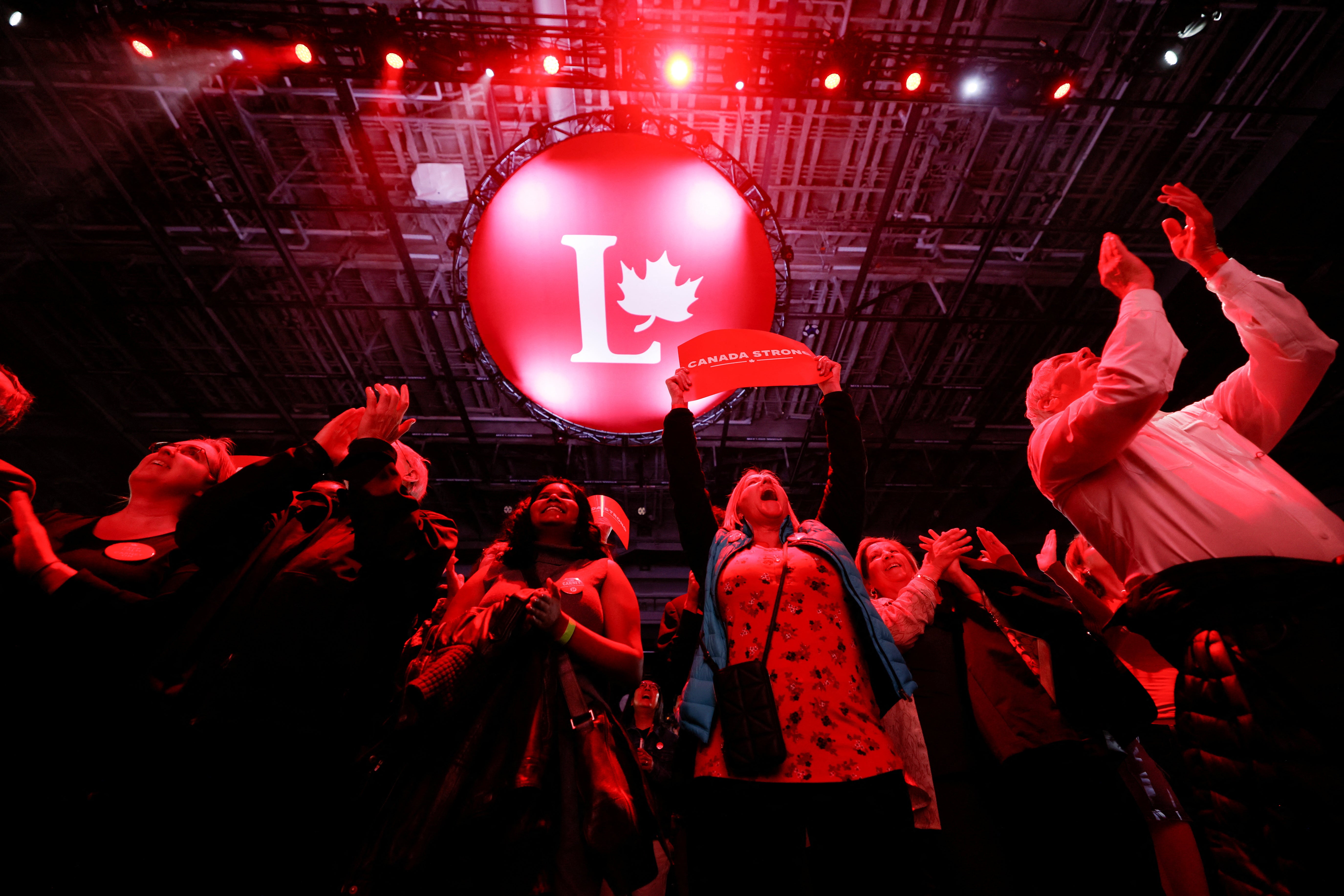
The Liberals looked headed for a crushing defeat until the American president started attacking Canada’s economy and threatening its sovereignty, suggesting it should become the 51st state.
Mr Trump’s actions infuriated Canadians and stoked a surge in nationalism that helped the Liberals flip the election narrative and win a fourth-straight term in power.
The opposition Conservative Party’s leader, Pierre Poilievre, hoped to make the election a referendum on former prime minister Justin Trudeau, whose popularity declined toward the end of his decade in power as food and housing prices rose.
Namita Singh29 April 2025 03:48
Profile: Who is Mark Carney? Canada’s prime minister fighting for re-election in Trump’s shadow
Mark Carney, Canada’s elected prime minister and head of the country’s Liberal Party, is going to the polls in the hope of re-election.
In recent months, the former governor of the UK’s Bank of England has to fight a war on two fronts. To the south he has had to contend with the Trump administration, which threatened then postponed crippling 25 percent tariffs on Canada, as well as taunted the country with the outlandish possibility of making it the 51st U.S. state.
Here’s what you need to know about him:
Mike Bedigan29 April 2025 03:30
All polls in Canada now closed
All of the polling stations in Canada are now closed.
The final polling stations in British Columbia and Yukon shut their doors at 10:00 p.m.
Mike Bedigan29 April 2025 03:00
More polls close, final stations to close soon
Polls in Ontario, Quebec and Nunavut, Manitoba, Saskatchewan, Alberta, the Northwest Territories and bits of British Columbia are now closed.
Stations in the rest of British Columbia and Yukon are due to close soon also, at 10:00 p.m.
Mike Bedigan29 April 2025 02:30
Liberal party ‘cautiously optimistic’ ahead of results
A CBC journalist, reporting live from the Liberal Party’s headquarters in Ottawa says that the atmosphere is “cautiously optimistic.”
However, they note that there are still many tight races, including in British Columbia.
Mike Bedigan29 April 2025 02:00


